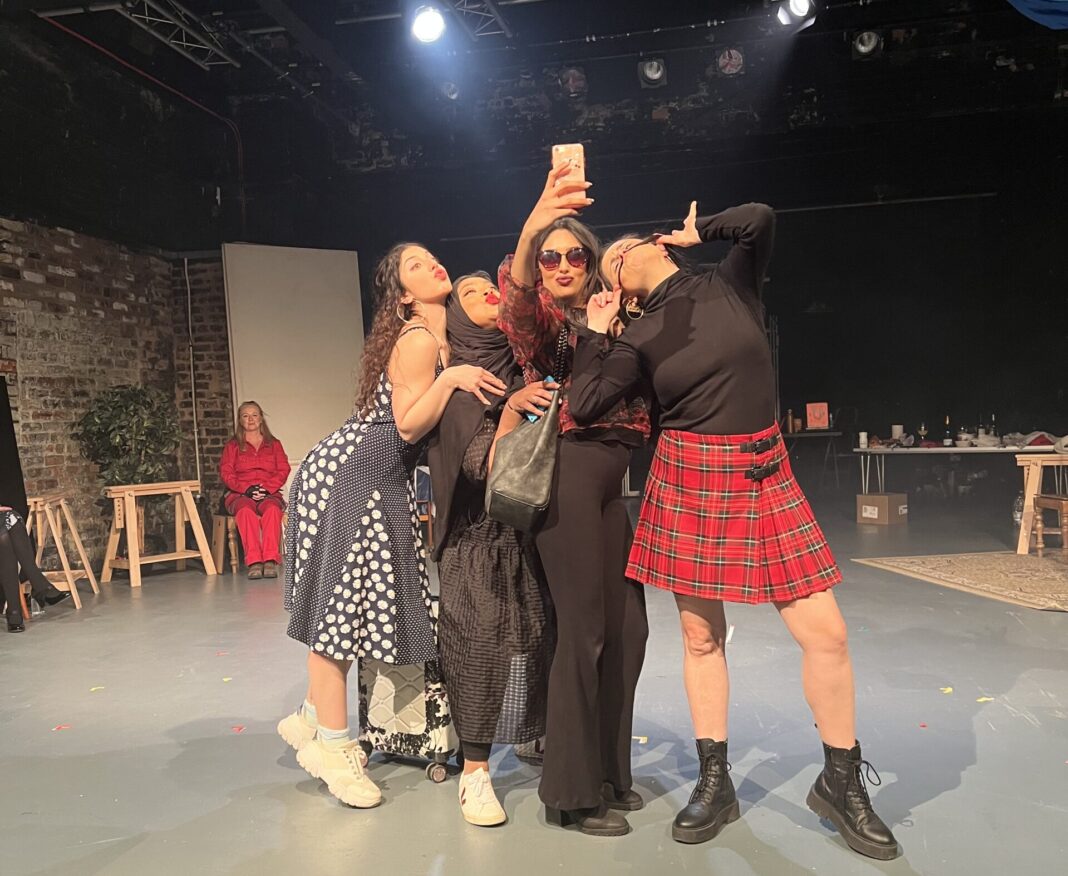Playwright: Zoe Iqbal
Producer: Hannah Ellis Ryan
Director: Channique Sterling-Brown
Production: HER Productions
There was an anticipatory buzz in the air at Hope Mill Theatre last weekend, as I waited amongst diverse crowds for Vignettes to begin. And it didn’t disappoint. A collection of six short plays written by local female playwrights, Vignettes gives an insight into the experience of womanhood through the lives of, what seem like, ordinary women; women we interact with all the time in our own day-to-day lives. But as each story gradually unfolds, we learn that what we see on the surface is not always a true reflection of everything they are made up of beneath it all; their hopes and dreams, their fears and obstacles.
Vignettes also nicely exhibits that there’s room for everyone in the theatre space, particularly through the closing play Halal Hens, which follows four British South Asian Muslim girls on a hen trip to Blackpool. As much as I love seeing British Muslims and South Asians thriving in the arts, sometimes I can’t help feeling a little underwhelmed by their work. Not because they’re not great at what they do, but because they tend to reinforce the same old outdated stereotypes. This may have been entertaining and original when films like East is East did it but, now, over 20 years later? It’s no longer relatable and can even be problematic for us.
So, it was energising to see Halal Hens address contemporary issues without confining its characters into those boxes that no longer exist. The writing is fresh and relevant, moving away from mocking our communities and towards unapologetically asserting our identity, in a way that empowers South Asian and British Muslim women; brown women owning their place in the theatre, which has always been a predominantly white space and generally inaccessible to non-white creatives, is a triumph in itself. Allowing the room for theatre to be more representative of minority communities is guaranteed to get more of us in the audience.
Not only does Halal Hens smoothly challenge perceptions about British Muslim women, but it does so whilst simultaneously upholding the underlying message of the story: you can be at different stages in your life to those around you and enduring hardships personal to you, but sisterhood will remain the constant that gives you the strength to get through it.
And the chemistry between the performers Anisa Butt, Nasima Begum, Noor Shahid and Zoe Iqbal (who is also the writer), is what makes the audience really feel the essence of this message. The energy that they bring to the characters, and then naturally between one another, isn’t something that can be scripted. The fact that Halal Hens is Nasima’s and Noor’s acting debuts in a play (something, I can say with full conviction, nobody could ever have guessed) only further signifies how raw talent makes this play what it is.
How refreshing to see a group of brown girls just having fun, being themselves, laughing together and crying together as they navigate their way through life. For me, the play sparked a sense of familiarity and, for once, it wasn’t because I had seen the same old narrative played out before; rather it felt like I was a part of it, a part of them, and on a hen trip to Blackpool with my own friends (the Mancunian accents may have had a part to play in this!)
Halal Hens is a love letter to the British Muslim women who crave to be seen and understood, who don’t fit within the lines that society has drawn for them and who are made up of perfectly messy layers. It encourages us to live our lives without fear and to be bold, be authentic and above all, be happy.
And so, I can’t accept that this story ends here. I would love to see it developed into something more…maybe a TV series? I don’t know what’s next for the Hens but one thing I know for sure is that there’s no way this is the last we’ve seen of these charming and extraordinary ladies.












